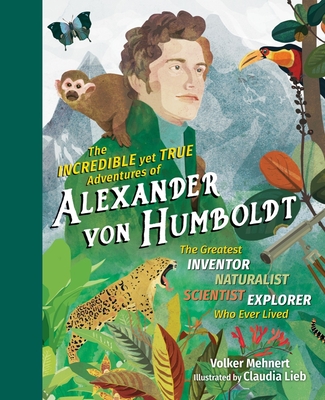

It was no accident, Wulf added, that Humboldt was a friend of fellow German polymath Johann Wolfgang Goethe (1749 – 1832) and had many encounters with indigenous peoples, which together ‘inspired him to think differently about nature’.ĭuring his extraordinary life, Humboldt voyaged through unexplored jungles and mountains in the Americas, met many of the most important figures of his age, and influenced many key figures, not least Charles Darwin. This ‘forgotten father of environmentalism’ predicted harmful human-induced climate change and remains relevant today because he viewed nature as a ‘web of life’, pioneered the idea of the ecosystem and even described the Earth as a ‘living organism’, which chimes with ‘Gaia’, a holistic view of the world that the independent scientist James Lovelock put forward in the 20 th century.

Wulf explained to the packed lecture theatre that he was the ‘Shakespeare of the sciences’ in his day when ‘the whole world was utterly in love with Humboldt.’

To celebrate the award of another major prize to her Humboldt biography, The Invention of Nature: The Adventures of Alexander von Humboldt, the Lost Hero of Science, author Andrea Wulf discussed her critically-acclaimed book about the Prussian polymath, geographer, naturalist, explorer and scientist in the museum with Gaia Vince, a fellow winner of the Royal Society Insight Investment Science Book Prize. Roger Highfield describes a recent encounter between Royal Society science book prize winners Andrea Wulf and Gaia Vince, held in the museum to celebrate Wulf’s latest prize, awarded by the British Society for the History of Science.Īlexander von Humboldt (1769–1859) was ‘one of those wonders of the world, like Aristotle…who appear from time to time, as if to show us the possibilities of the human mind,’ according to the 19 th-century American essayist and philosopher Ralph Waldo Emerson.


 0 kommentar(er)
0 kommentar(er)
